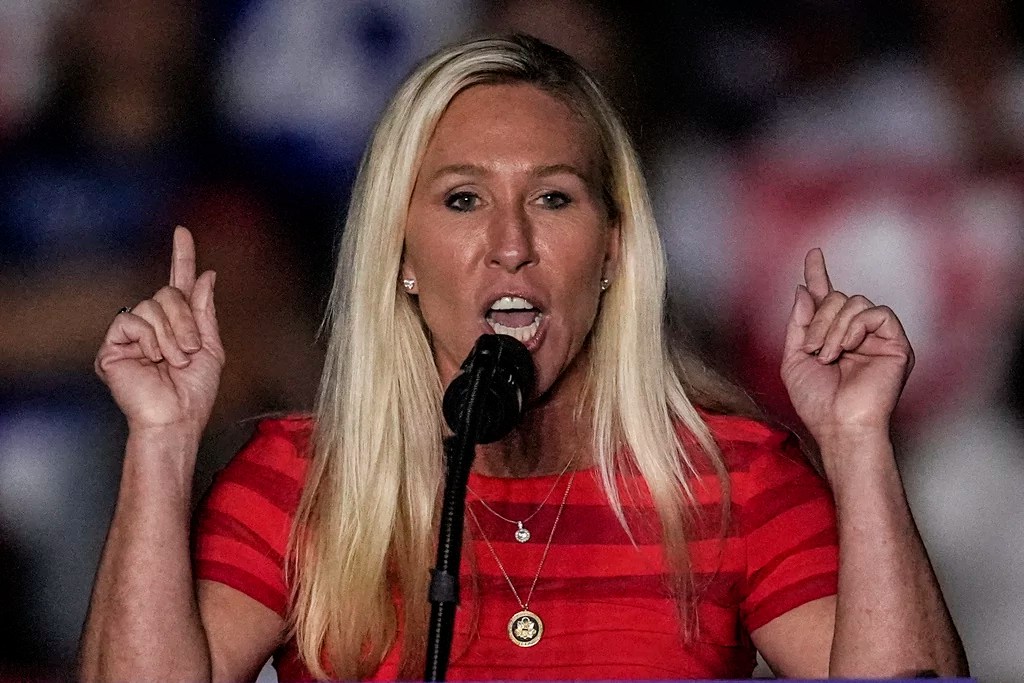House Dems Pass Gun-Control Bills That Would Dramatically Increase Wait Times

Democrats took a major step in imposing stricter gun laws on Thursday as the House of Representatives passed two gun-control bills.
H.R. 8 and H.R. 1446 passed the House largely along party lines but with some defections from each party. The bills would modify the federal gun background check system. H.R. 8 would outlaw the private sale of used guns unless done through a licensed dealer and H.R. 1446 would extend the time the FBI can delay a gun sale without making a decision by up to 17 business days.
Democrats celebrated the passage of the bills. Speaker Nancy Pelosi (D., Calif.) said they will “make the world safer for all children and all people in our country.” Republicans opposed them, with Rep. Chip Roy (R., Texas) saying the bills are an attack on the Second Amendment. He accused Democrats, who introduced the bills on March 2, of trying to “jam through” the legislation.
H.R. 8 passed by a vote of 227-203 with eight Republican “yes” votes and one Democratic “no” vote. H.R. 1446 passed with a vote of 219-210 with two Republican “yes” votes and two Democratic “no” votes.
Similar bills passed the House in 2019 but were not brought up for a vote in the Republican-controlled Senate. With Democrats taking control of the Senate and presidency in the 2020 election, the bills are more likely to receive a vote in the chamber and make it into law. The bills will face a higher hurdle in the evenly divided Senate where they will need to garner 60 votes, including 10 from Republican senators, to pass.
A bill similar to H.R. 8 backed by Joe Manchin (D., W.Va.) and Pat Toomey (R., Pa.) received 54 votes in the Senate back in 2013. That bill was less restrictive and focused solely on private sales of used guns whereas H.R. 8 goes a step further and bans all transfers of guns between private individuals unless they go through a licensed dealer. The bill makes some exceptions for family members, hunting trips, and situations where an “immediate” deadly threat is involved.
Democrats and gun-control advocates argue the bill will expand background checks to all gun sales and prevent criminals or other people prohibited from owning firearms from buying them. Republicans and gun-rights advocates argue the system will be ineffective without a national gun registry, which they argue is unconstitutional.
H.R. 1446 would extend how long the FBI can delay a gun purchase through the National Instant Criminal Background Check System. While most checks happen instantly, some require more investigation from the FBI to determine if the buyer has a disqualifying criminal or mental health record. Currently, the FBI has three days to make that determination before a sale is allowed to go through. H.R. 1446 would extend that to as many as 20 business days.
Advocates argue the bill is necessary to prevent people from obtaining firearms without a completed background check. They point to the 2015 Charleston shooting where the killer obtained his gun after such a delay. It is unlikely, however, that H.R. 1446 would have prevented him from obtaining his firearm since a mistake by the FBI background investigator and not the delay period was what allowed him to purchase the firearm.
If the FBI had not missed a disqualifying court case against the killer, it could have denied his purchase or sent the ATF to collect his firearm in the two months between when he purchased the gun and carried out his attack. ATF gun retrievals in similar circumstances happen several thousand times per year.
Critics of H.R. 1446 argue the delay process in the bill could create an effectively unending cycle. The bill extends the delay period to 10 business days and institutes a petition process to expedite the check. Rep. James Clyburn (D., S.C.), who introduced the bill, said in a release the petition would come after the initial 10-day period and add an additional 10 business days before a sale could be completed without a final decision from the FBI. Since background checks are only valid for 30 calendar days, critics such as the National Rifle Association argue a buyer could be delayed long enough to make the process start over again. That could create a situation where someone is indefinitely delayed from making their purchase without the FBI ever determining they have a disqualifying record.
President Joe Biden called gun violence a “public health crisis” and backed both bills as a way to “help close existing loopholes” in the background check system, in a statement on Monday.
Gun-control groups said the passage of the bills is a boon to their efforts to tighten gun laws. Brady United, which helped create the background check system in 1993, told members in an email “we are closer than ever to finally expanding and strengthening Brady Background Checks.” March For Our Lives, founded by survivors of the 2018 Parkland shooting, described the bills as “a step forward” but demanded more be done.
“We are nowhere close to ending gun violence in the United States even after this legislation passes,” the group said in a statement.
Gun groups decried the legislation as an attack on the Constitution. “We said it during the election and we’ll say it again: Biden wants to DISMANTLE the 2nd Amendment,” the National Rifle Association said after the bills passed.
" Conservative News Daily does not always share or support the views and opinions expressed here; they are just those of the writer."





Now loading...